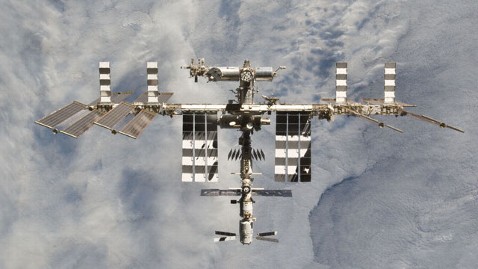Space Station Astronauts Lose NASA Communications Link for 2 Hours

Earth at night from International Space Station. Image: NASA
NASA reported this morning that it lost its main communications link with the International Space Station for two hours. It blamed the problem on a computer glitch. The six astronauts on the station, it said, were fine, and still able to talk, at least intermittently, with controllers through Russian ground stations before the problem was solved.
A statement posted this morning by NASA:
"This morning, at approximately 9:45 a.m. EST, the International Space Station experienced a loss of communication with the ground. At that time, flight controllers in Houston were updating the software onboard the station's flight computers when one of the station's data relay systems malfunctioned. The primary computer that controls critical station functions defaulted to a backup computer, but was not allowing the station to communicate with NASA's Tracking and Data Relay Satellites.
Two hours later NASA put a quick update on Twitter: "Communications have been restored with the space station effective 11:34AM Central."
There was a bit of commotion at the Johnson Space Center in Houston, where public affairs people pointed out that during the outage, the astronauts are able to talk directly to ground stations as they passed overhead, much the way astronauts did in the early days of the space program. Since the 1980s, NASA has had a fleet of Tracking and Data Relay satellites - TDRS for short - in much higher orbit, which allow for communication with few interruptions.
The problem came up while new software was being sent to the station's main computer. "The computer basically burped, for lack of a better word," said Josh Byerly of NASA. The astronauts were were able to reconfigure their computers and solve the problem, he said.
Related: Chasing the Russian Meteor
There are six crew members on board - Americans Kevin Ford and Tom Marshburn; Russian cosmonauts Oleg Novitiskiy, Evgeny Tarelkin and Roman Romanenko; and Canadian Chris Hadfield.

NASA image